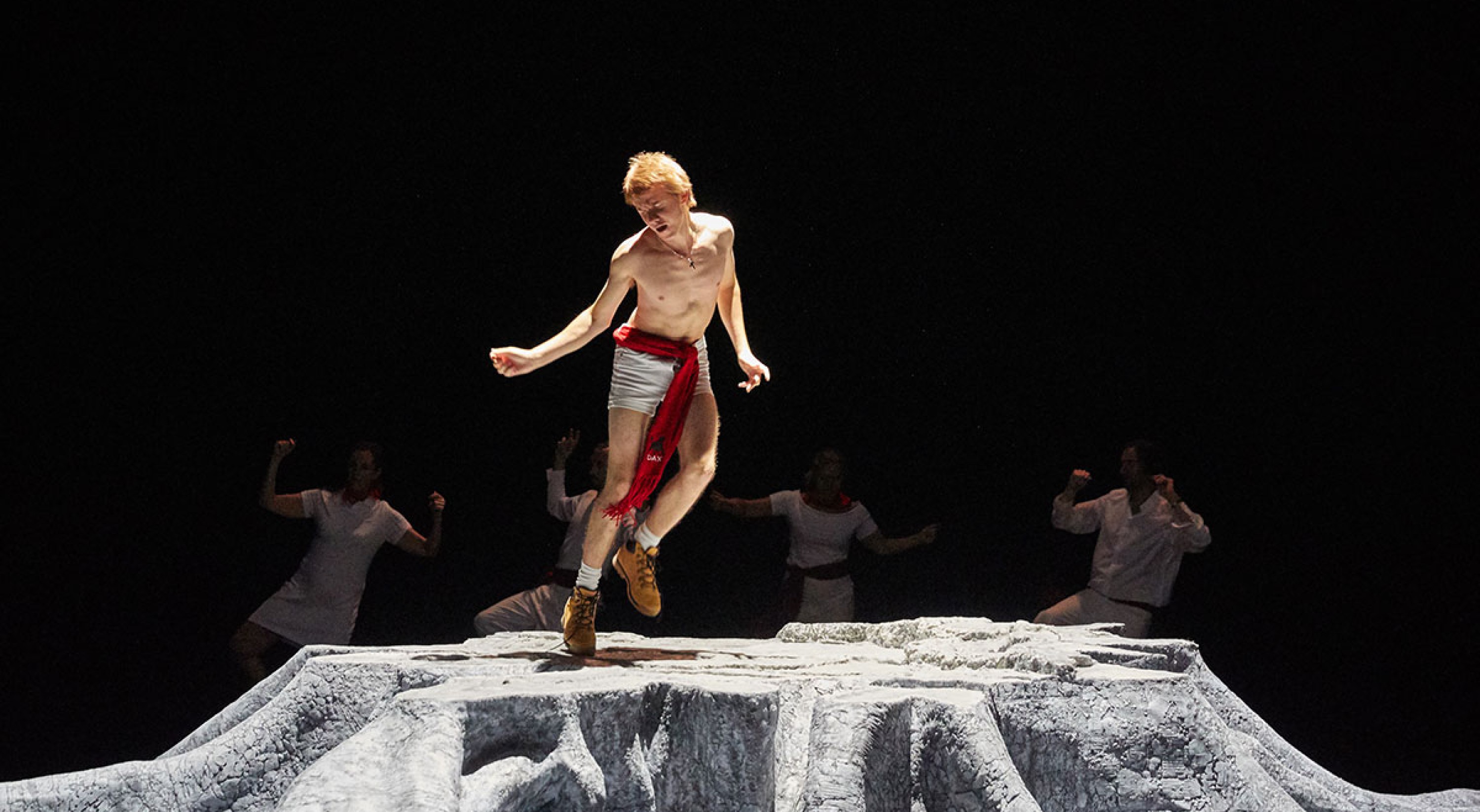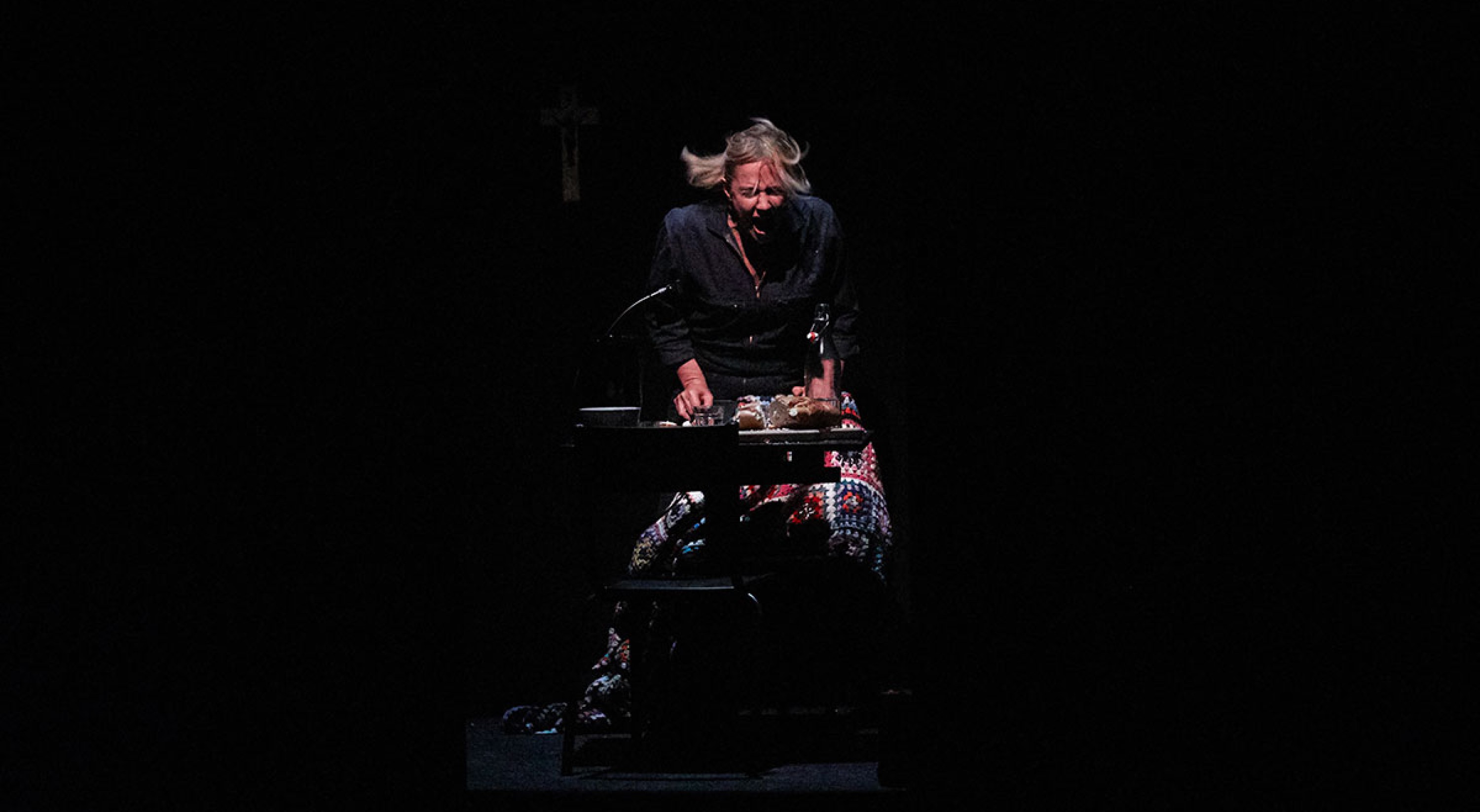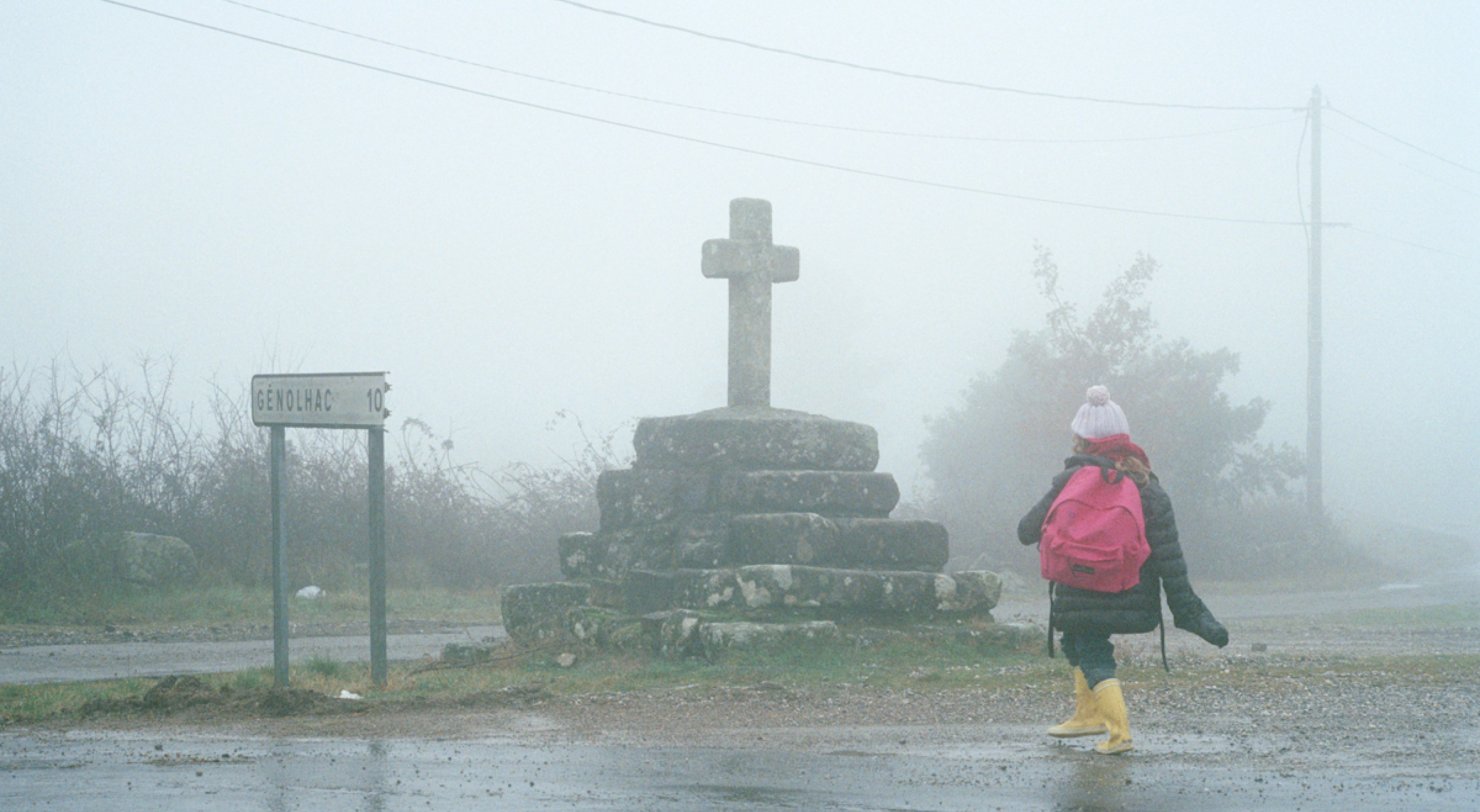Jonathan Capdevielle
À nous deux maintenant
based on A Crime by Georges Bernanos
novembernov 23 - december – dec 23
Devised, adapted and directed by Jonathan Capdevielle
With, Clémentine Baert, Arthur Bartlett Gillette (alternatively with Jennifer Hutt), Jonathan Capdevielle, Dimitri Doré, Jonathan Drillet, Michèle Gurtner
Artistic advice, and assisted by Jonathan Drillet
Stage design, Nadia Lauro
Stage construction, Les ateliers de Nanterre-Amandiers – Marie Maresca, Michel Arnould, Gabriel Baca, Théodore Bailly, Mickaël Leblond
Lighting, Patrick Riou
Musical composition and coaching, Arthur Bartlett Gillette
Costumes, Colombe Lauriot Prévost
Sound design, Vanessa Court
IT-based musical collaboration, Ircam, Manuel Poletti
Stage management, Jérôme Masson
Outside eye, Virginie Hammel
Production, distribution, and administration, Fabrik Cassiopée, Isabelle Morel, Manon Crochemore and Romane Roussel
Executive production, Association Poppydog // Co-produced by Le Quai, Nouveau Théâtre d’Angers ; CDN Orléans/Loiret/Centre ; Le manège, scène nationale-Reims ; Théâtre Garonne – Scène européenne (Toulouse) ; L’Arsenic, Centre d’Art scénique contemporain (Lausanne) ; Le Parvis, Scène nationale Tarbes-Pyrénées ; Ircam (Paris) ; Nanterre-Amandiers, centre dramatique national ; and Festival d’Automne à Paris // In association with Nanterre- Amandiers, centre dramatique national ; and Festival d’Automne à Paris // With support from King’s Fountain // With assistance from CND Centre national de la danse (Panin), de La Villette – Artists residency 2016 and from Quartz – Scène nationale de Brest // With support from Adami // First performed on 6th Novembre 2017 at Quai, Nouveau Théâtre d’Angers.
Jonathan Capdevielle brings to life on stage the timeless crime thriller by Georges Bernanos, The Crime. He sifts through the particularities of our different regions in France, and dissects the traditions of their straight-talking villagers. Through this portrayal of these authentic figures, he examines the human condition with empathy, tenderness and dark humour.
At the hub of the intrigue is “the priest of Mégère”, a woman who, dressed up in God’s garments, acts in a way which is contrary to the Catholic faith. She is driven by enigmatic, deadly designs. The author’s audacity, ruse and finesse lies in the way he allows the reader to get bogged down in the labyrinthine possibilities of his or her own investigations. Seemingly lost in a no-exit thriller, and overwhelmed by the polyphony of the different characters, it is up to the reader to follow their own voice and path. The director gets straight to the heart of this explosive mixture of strange, frightening and ever so fantastical goings on. He does so by bringing upstage the role of this young female transvestite. In a disturbing, poignant way, she overturns the established order of her human environment. In the sea of this Bernanos-like chaos, we find Jonathan Capdevielle at the helm, experimenting with the multiplicity of different roles that each of his actors takes on, and a polychrome typology of the text’s interpretation. Ranging from exaltation to realism, audiences are presented with a broad spectrum of possibles, thereby blurring the frontiers between reality, dream and nightmare.


